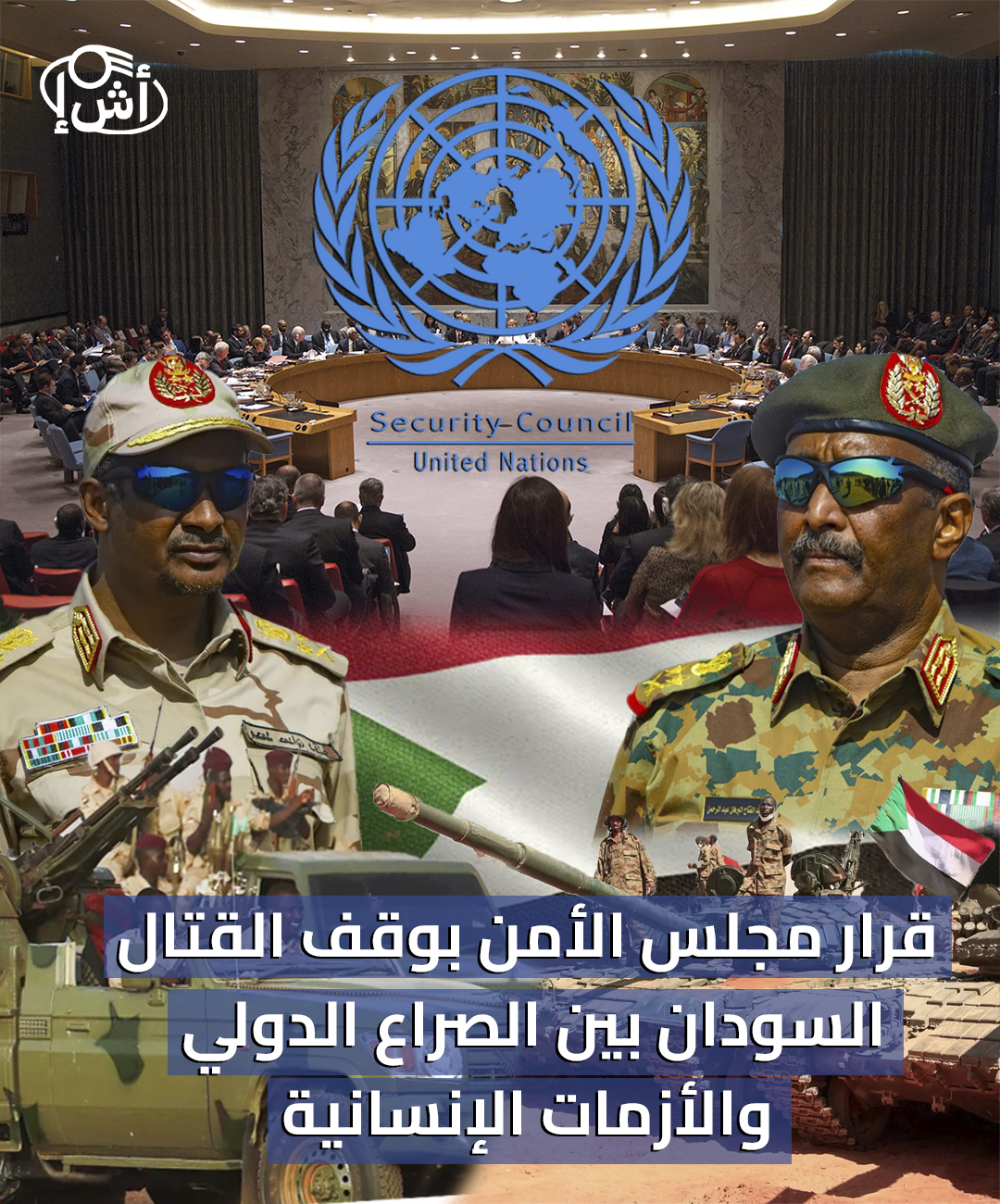The session of the United Nations Security Council on March 8, 2024, showed the nature of the interaction between international interests and the attempt to reach a peaceful solution.
Despite doubts about the ability of the UN resolution to stop the war in Sudan during the month of Ramadan, this resolution represents a shift in dealing with the current situation.
Resolution No. 2724 is not binding, and witnessed wide discussions during the session, which reflected the international competition for Sudan, and the divergent thinking among the members of the Security Council on the concept of state sovereignty, in addition to the international dynamics that sometimes push some of its members to use the veto for various considerations, as the resolution was a double test of international relations on the one hand and the nature of the internal response of the conflicting forces in Sudan.

Preliminary copy of the decision
Less than 24 hours before the entry into force of this resolution, violent clashes broke out in the Darfur region, which is mostly controlled by rapid intervention forces, and preconditions set by the Sudanese Ministry of Foreign Affairs for the implementation of the resolution appeared and stipulated the withdrawal of the Rapid Support Forces from key areas, a position that shows the lack of trust and complexity that characterizes the conflict.

What the resolution lacked, and perhaps like most Security Council resolutions, effective mechanisms to stop the war and ensure the delivery of humanitarian aid to those affected by the conflict, as the international experience shows that mechanisms often come at the expense of the sovereignty of states, as happened in Libya, for example, and the reproduction of the “Libyan experience” again at the level of the Nile Basin, international mechanisms need “regional legitimacy” so as not to become an area for violations of sovereignty, and the “African guarantee” is necessary to implement any international action, as the international action currently stands at the limits of stopping Temporary fire, at a time when such a matter requires a “peace process” on which the resolution is based
Reframe the conflict
It is clear that the Security Council resolution carries with it an attempt to formulate the Sudanese conflict, as there is a state of non-binding for the Sudanese government, on the other hand, the resolution carries a collective call for an immediate cessation of hostilities before Ramadan, and urges all parties to search for a lasting solution through dialogue and to ensure unhindered, safe and rapid humanitarian access across borders and conflict lines, as the initiative put forward by Britain is only a prelude to an international deal with the Sudanese crisis.

In practice, Russia’s position, expressed by Deputy Ambassador Anna Evstinyeva, confirms the optional nature of the resolution, as Moscow’s fears were clear that the resolution would become a case of imposing external dictates on sovereign states, and this position serves as a reminder of the geopolitical complexities and rejection of the single approach that characterized the work of the Security Council over the past years.

In parallel, the United States earlier appointed Tom Perriello as special envoy to Sudan, which indicates an increased focus on the Sudanese crisis after multiple accusations that the White House ignores the crisis and leaves it to its European allies to deal with the existing war, and Perriello is scheduled to hold multiple regional and internal meetings, in order to develop multiple scenarios for any upcoming negotiation, the US envoy through his diplomatic tour will move between Africa and the Middle East, and will try to mobilize support for the American role in the peace process. Domestically, Washington will expand the dialogue to include Sudanese civil society.
It seems clear that the Security Council resolution will provide a new mechanism for political dealing with the joints of the crisis, especially for the United States, which moved quickly after it in order to re-enter the epicenter of the ongoing conflict in the Nile Basin region to achieve its interests.
Written by Mazen Bilal
Sudan.. Bombing of El Fasher leaves 257 dead and widespread destruction in hospitals
